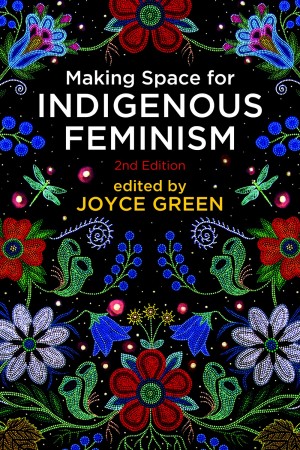Authors set to launch book on Indigenous feminism amid swirling controversy over MMIWG inquiry
By Farah Ibrahim
Indigenous feminism is a hot topic in Ottawa amid rising dissatisfaction with the national inquiry into missing and murdered indigenous women.
The issue will be front and centre when Indigenous writers Mary Eberts and Robyn Bourgeois hold a lecture in Centretown on March 2 to launch the second edition of the book Making Space for Indigenous Feminism, edited by Joyce Green.
Both Eberts and Bourgeois contributed chapters to the edited volume.
The lecture will be held at @25One Community, at 251 Bank St.
Eberts, a constitutional lawyer, said the book touches on violence against women and whether Indigenous women can have a safe environment in the current political context. She said the issue is important because it addresses struggles particular to her people.
“There is an Indigenous feminism that is distinctive from other feminisms and from other perceptions of Indigenous women,” she said.
The national inquiry into Murdered and Missing Indigenous Women and Girls has been mired in controversy from the start.
Eberts said she hopes the future of the inquiry will be revealed soon so that Indigenous women can map out all possibilities.
“There is still a tremendous amount of discrimination against Indigenous women, and a lot of that discrimination resides in the official places of the state — namely in police, in government, and in children’s welfare,” she said. “There needs to be a tremendous, tremendous attitude change in those places.”
Concerns about the inquiry follow a series of high-profile staff changes and methodology issues that have been the subject of much news coverage and speculation.
Two dozen of the inquiry’s employees have resigned or been fired. Marion Buller, chief commissioner of the inquiry, has been a focus of criticism, especially after an appearance at the Assembly of First Nations in December, where her update on the inquiry was received poorly.
The AFN passed a resolution stating that its support for the inquiry would only continue if Buller steps down. Another resolution demanded a full reset with an entirely new mandate. Among these demands, the chiefs addressed what they saw as an overly legalistic approach to the Inquiry.
Kaummajuk Holly Jarrett, founder of social injustice campaign #AmINext, agrees that the commission’s approach is unsuitable and says the commissioners should have been chosen based on knowledge of the core issues rather than on legal knowledge.
Jarrett also said she takes issue with the decisions taken by Carolyn Bennett, federal Minister of Crown-Indigenous Relations.
“I personally blame Carolyn Bennett’s office and all who fall under her. She had access to advocate for this to be much different,” said Jarrett. “But instead she toed the Liberal line, and the end result is what we see now.”
Jarrett said the inquiry currently is “creating just as much trauma at a national level as what indigenous women experience every day at a personal level.”
She said she is an Indigenous feminist because the movement helps people look at inclusion. “It is a theory based on holistic practices and models of inclusion in community. It allows women to be at the lead and in control of their own lives.”
Jarrett added: “I want (Canadians) to know that the inquiry is failing because we haven’t been given appropriate ownership in our own context.”

